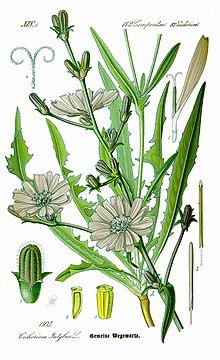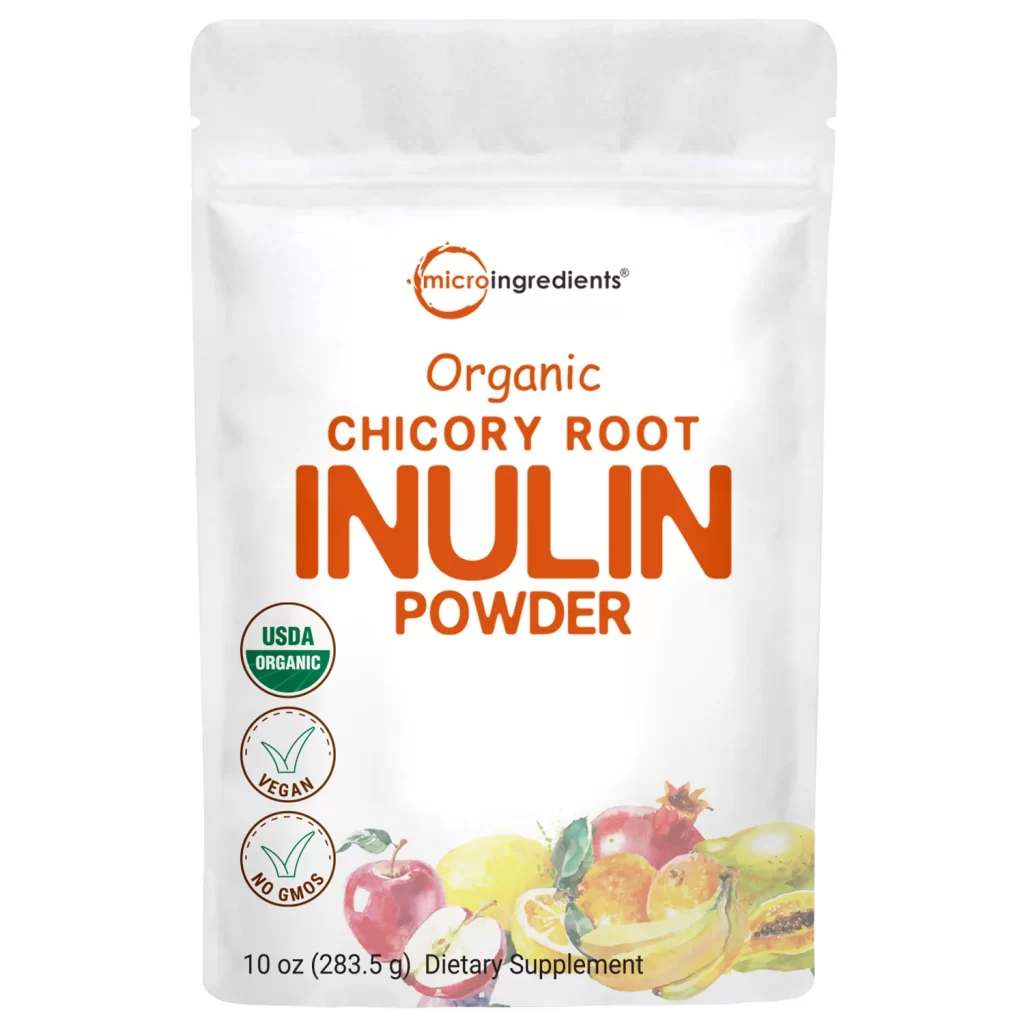What is Chicory Root (Cichorium intybus)? Health Benefits, Side Effects and Uses

In this article I answer the question What is chicory root as well as research its health benefits, side effects and use cases.
What is Chicory Root?
Chicory, also known as Cichorium intybus, is a powerful plant that has been used by Native American tribes for centuries.
The root of the chicory plant is known to be rich in inulin, a type of soluble fiber that promotes the growth of beneficial bacteria in the gut. It also has strong antioxidant and anti-inflammatory properties.
Chicory has many uses, from being a traditional medicine, to being a coffee substitute, to being a leafy green vegetable. This article will take a look at the many benefits of chicory, as well as the potential side effects and uses of this powerful plant.

Chicory Health Benefits

Potential Chicory Side Effects
It is important to keep in mind that consuming chicory root in moderate amounts is generally considered safe. However, if you have any health concerns, or are taking any medication, it is best to consult with your doctor before consuming chicory root.
Chicory Nutritional information
Here’s Chicory’s Nutritional value per 100 g (3.5 oz). Source: USDA
| Quantity | %DV† | |
|---|---|---|
| Energy | 96 kJ (23 kcal) | |
| Carbohydrates | 4.7 g | |
| – Sugars | 0.7 g | |
| – Dietary fiber | 4 g | |
| Fat | 0.3 g | |
| Protein | 1.7 g | |
| VITAMINS | ||
| Vitamin A equiv. | 286 μg | 36% |
| – beta-Carotene | 3430 μg | 32% |
| – lutein zeaxanthin | 10300 μg | |
| Thiamine (B1) | 0.06 mg | 5% |
| Riboflavin (B2) | 0.1 mg | 8% |
| Niacin (B3) | 0.5 mg | 3% |
| Pantothenic acid (B5) | 1.159 mg | 23% |
| Vitamin B6 | 0.105 m | 8% |
| Folate (B9) | 110 μg | 28% |
| Vitamin C | 24 mg | 29% |
| Vitamin E | 2.26 mg | 15% |
| Vitamin K | 297.6 μg | 283% |
| MINERALS | ||
| Calcium | 100 mg | 10% |
| Iron | 0.9 mg | 7% |
| Magnesium | 30 mg | 8% |
| Manganese | 0.429 mg | 20% |
| Phosphorus | 47 mg | 7% |
| Potassium | 420 mg | 9% |
| Sodium | 45 mg | 3% |
| Zinc | 0.42 mg | 4% |
| OTHER | ||
| Water | 92 g |
How Chicory is used?
Chicory’s root and leaves can be used and consumed in a number of ways.
Chicory root coffee
Chicory root can be roasted, ground and used as a coffee substitute or added to coffee to give it a richer flavor. You can buy chicory coffee on amazon.
Brewed as tea
Chicory root can be dried, ground and brewed as tea as well. It has a rich, earthy flavor and is caffeine-free. Again, if you are tea type person, you can buy Chicory dried leaves from Amazon and brew them as tea.
As a vegetable
The leaves of the chicory plant can be eaten raw or cooked as a leafy green vegetable. They have a slightly bitter taste, and are often mixed with other greens to balance the flavor.
In Supplements
Chicory root can be taken as a supplement in the form of capsules, powder, or extract. If you prefer betting chicory in powder form, I recommend doing so from Microingredients. Best quality, organic and trusted company.
As a capsule form, I suggest you check HERBAMAMA’s Organic Chicory Root Supplement, sold on Amazon and as an extract, you can check this Chicory Tincture Extract – sold again on Amazon and has some really nice reviews.
Cosmetics and skincare products
Chicory root is known for its anti-inflammatory and antioxidant properties, and is often used in cosmetics and skincare products such as lotions and creams.
Food and beverages
Chicory root is often used as an ingredient in food and beverages such as ice cream, chocolate, and beer. It can also be used as a sweetener or a source of fiber in processed foods.
It’s important to note that in order to reap the benefits of the plant, it’s important to use it in a way that preserves the compounds of the plant. For example, boiling or frying the leaves of the chicory plant may reduce its nutritional value.
Bottom Line
In conclusion, chicory (Cichorium intybus) is a versatile plant that has been used for centuries by Native American tribes for its medicinal properties. It is rich in inulin, a type of soluble fiber that promotes the growth of beneficial bacteria in the gut, and has antioxidant and anti-inflammatory properties.
Chicory root has many uses, from being a coffee substitute, to being a leafy green vegetable, to being a traditional medicine. While it is generally considered safe, consuming large amounts of chicory root or taking it in supplement form may cause side effects such as gas and bloating, and may interact with certain medications.
As with any supplement or food, it is best to consult with a healthcare professional before consuming it.
Chicory root is a versatile and powerful plant with many benefits, and with proper use, it can be a valuable addition to a healthy lifestyle.



